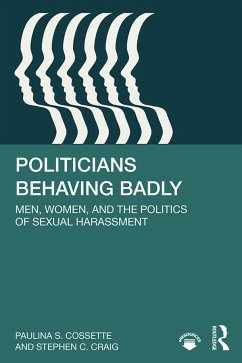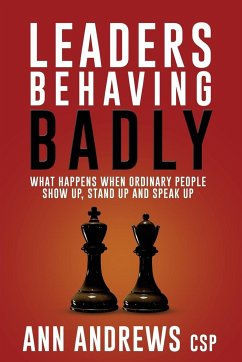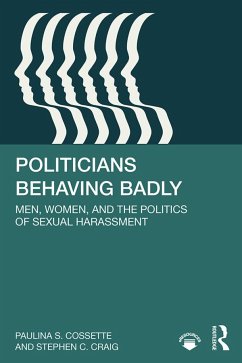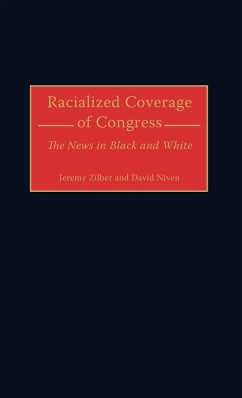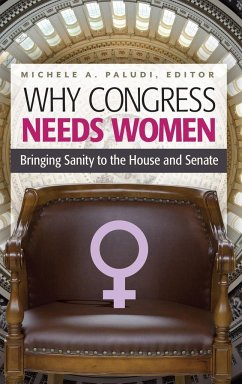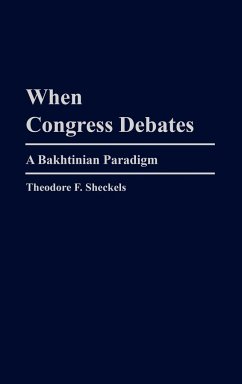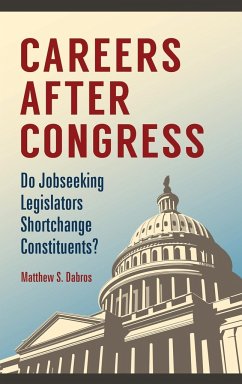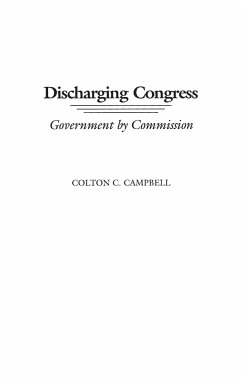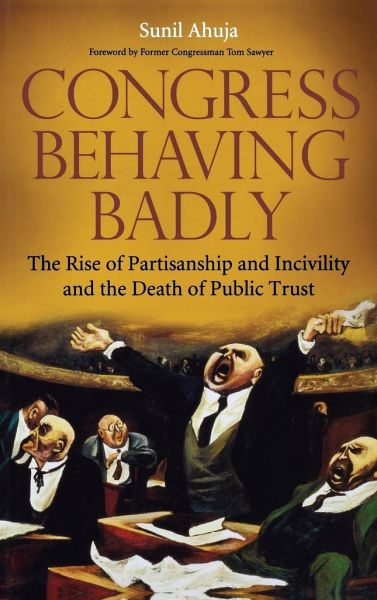
Congress Behaving Badly
The Rise of Partisanship and Incivility and the Death of Public Trust
Versandkostenfrei!
Versandfertig in 1-2 Wochen
70,99 €
inkl. MwSt.

PAYBACK Punkte
35 °P sammeln!
Partisan rancor and the public exchange of incivilities among members of Congress have become rampant on Capitol Hill and in the media studios since the 1980s. Polarization between mutually repugnant congressional factions has reached the point that the legislative process is paralyzed and democracy is hobbled. Ahuja documents the rise of incivility and partisan shrillness in Congress, traces its complex causes, identifies its adverse consequences for the functioning of democratic government, and prescribes remedies to curb destructive partisanship and restore dignity and efficiency to the wor...
Partisan rancor and the public exchange of incivilities among members of Congress have become rampant on Capitol Hill and in the media studios since the 1980s. Polarization between mutually repugnant congressional factions has reached the point that the legislative process is paralyzed and democracy is hobbled. Ahuja documents the rise of incivility and partisan shrillness in Congress, traces its complex causes, identifies its adverse consequences for the functioning of democratic government, and prescribes remedies to curb destructive partisanship and restore dignity and efficiency to the workings of Congress. Partisan rancor and the public exchange of incivilities between members of Congress have become rampant on Capitol Hill and in the media studios since the 1980s. Polarization between mutually repugnant congressional factions has reached the point that the legislative process is paralyzed and democracy is hobbled. Ahuja documents the rise of incivility and the partisan shrillness in Congress, traces its complex causes, identifies its adverse consequences for the functioning of democratic government, and prescribes remedies to curb destructive partisanship and restore dignity and efficiency to the workings of Congress. Ahuja catalogs the most shocking examples of the abrasive new confrontational style as practiced by the likes of Gingrich, Burton, and Pelosi in the House, and by Boxer, Santorum, and Lott in the Senate. He contrasts this new style of congressional comportment with the decorum and pragmatism of the old style exemplified by such leaders as Foley, Hamilton, and Michel in the House, and by Dirksen, Mansfield, and Moynihan in the Senate. Ahuja identifies six causes of the rise of partisanship and incivility among congressional members: *Political redistricting and imposition of party discipline. *rising influence of adversarial special-interest groups. *adversarial format fostered by the 24-hour news cycle. *rising use of short-term consultants. *increasing insertion of wedge issues. *avoidance of social interaction among opposing members. The author prescribes measures for restoring civility and moderating partisanship in Congress: reapportioning legislative districts; restricting the influence of consultants, media, and interest groups; and regularizing social interaction among congressional opponents.



